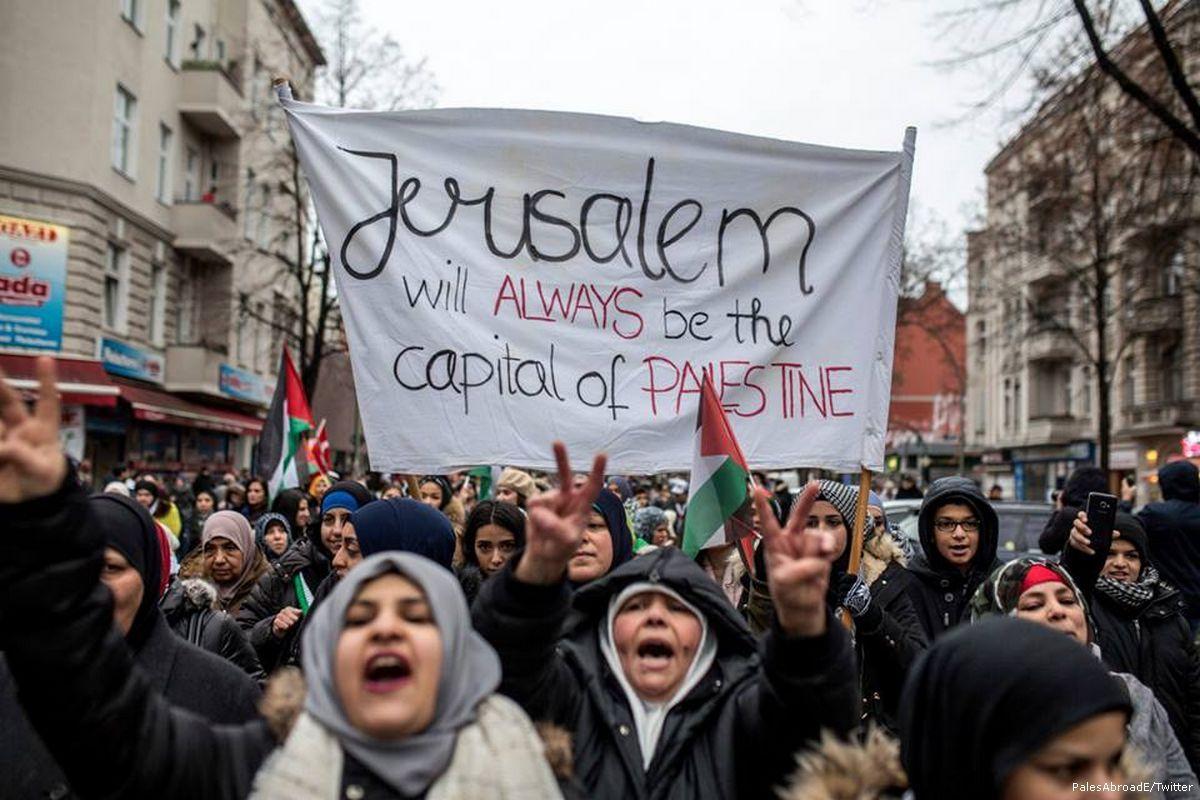Palestinian capital in Jerusalem is ‘aspiration not a right’, US’ Greenblatt says

US Special Representative for International Negotiations, Jason Greenblatt, has said that the creation of a Palestinian capital in East Jerusalem is an “aspiration not a right”
Speaking at the United Nations Security Council yesterday, Greenblatt said that while “it is true that the PLO [Palestine Liberation Organisation] and the Palestinian Authority [PA] continue to assert that East Jerusalem must be a capital for the Palestinians, […] let’s remember, an aspiration is not a right.”
Greenblatt also shunned international law as the foundation of any future peace agreement: “We have all heard cogent arguments claiming international law says one thing or another about this or that aspect of the Israeli-Palestinian conflict. Some of those arguments are persuasive, at least to certain audiences. But none of them are conclusive.”
“There is no judge, jury, or court in the world [to which] that the parties involved have agreed to give jurisdiction in order to decide whose interpretations are correct,” he added.
International law considers East Jerusalem occupied territory after it was captured by Israel during the 1967 War; it likewise does not recognised Israel’s annexation of the city in 1980.
The top US envoy also appeared to rule out international consensus, which has long worked on the premise of dividing or sharing Jerusalem as the capital of both Israel and a future Palestinian state.
“If a so-called international consensus had been able to resolve the Israeli-Palestinian conflict, it would have done so decades ago. It didn’t,” he quipped.
Greenblatt’s comments will be seen as yet more evidence that the administration of US President Donald Trump does not intend to fulfil Palestinian rights in Jerusalem.
Since President Trump announced his recognition of the Holy City as Israel’s capital in December 2017 and moved the US embassy there in May 2018, any such prospect has grown increasingly distant.
This was compounded by rumours surrounding the so-called “deal of the century”, which Greenblatt has spearheaded alongside Senior Advisor to the President and Trump’s son-in-law, Jared Kushner. Last month a senior Israeli source told Israeli newspaper Makor Rishon that under the “deal of the century” Abu Dis – a neighbourhood of Jerusalem located beyond Israel’s Separation Wall in the occupied West Bank – would be the Palestinian capital.
Other leaks have suggested that, under the deal, Jerusalem is to be shared by Israel and “New Palestine”, a new state created in the occupied West Bank and besieged Gaza Strip (minus the vast swathes of land on which Israel’s illegal settlements now sit, which would become part of Israel). Under this alleged agreement, Israel would maintain general control of “shared” Jerusalem.
Exactly when the political elements of the “deal of the century” will be revealed is not yet clear. Though the economic aspects were unveiled at the “Peace to Prosperity” conference in Bahraini capital Manama last month, the second half of the deal has been repeatedly delayed; a number of excuses have been provided, including “political instability” in Israel as a result of repeat electionsand religious holidays.
Questions have been raised as to whether the political part of the deal will be unveiled at all, given the proximity of the 2020 US elections in which President Trump will seek re-election. Greenblatt told the Security Council yesterday that the president has still not decided when to release the plans’ political portion, adding only that “we hope to make that decision soon”.
The broad rejection of the deal both by Palestinian factions and Israel, as well a lack of support from key figures in the US – most notably Secretary of State Mike Pompeo – is suspected to be a key factor behind the repeated delays.
Source: Middle East Monitor

WRITE YOUR COMMENT